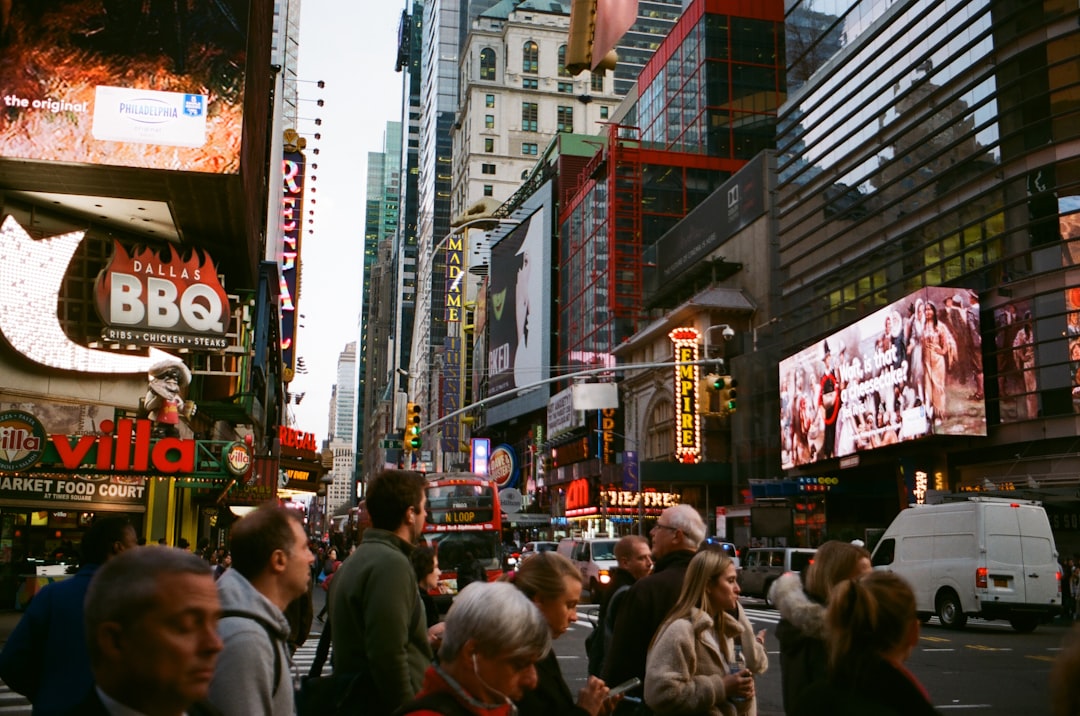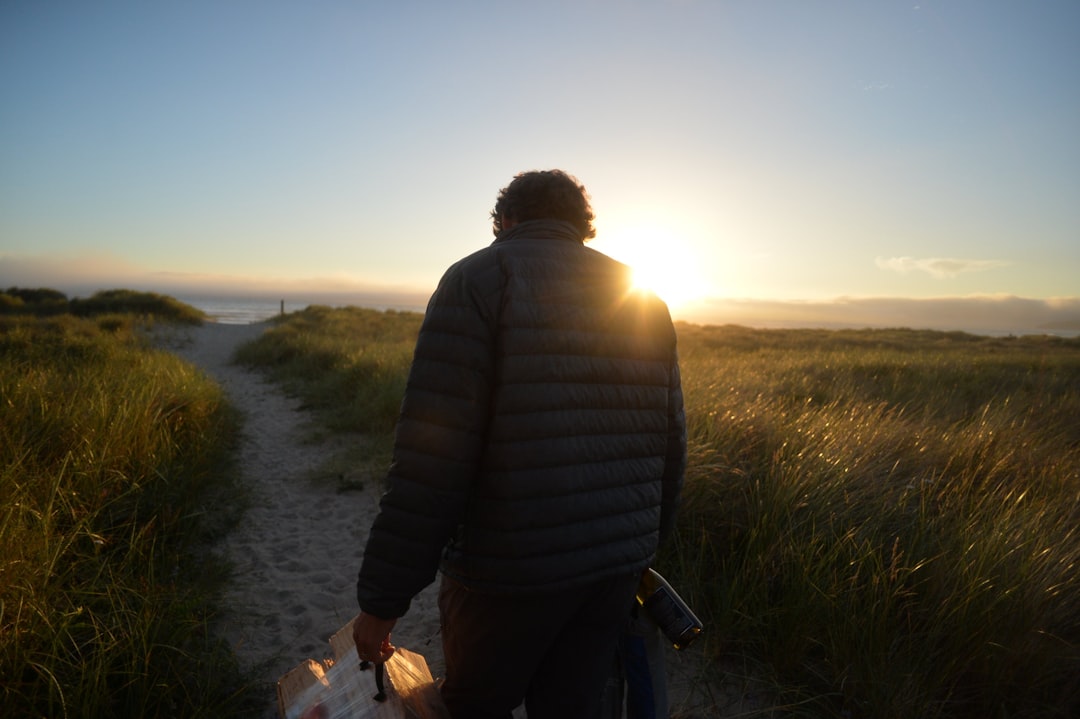I Am Anxious... Kara Norman
The writer, mother, and artist talks about mental and physical paralysis, the power of parenting, and following her bliss.
Kara Norman is a writer, mother, and human being who writes Under a Spell, a newsletter exploring the vagaries (and joys) of parenting, as well as the murkier experience of being a woman and an artist in North America. She is also training to be a life coach. She loves to draw, paint, gab with her friends, move her body in nature, and eat buttered Pop Tarts.
“Under a Spell started as a way to process a physical move my family made across the state of Michigan. I also underwent brain surgery for a benign tumor in 2021. Under a Spell has turned into a place where I inadvertently track the nuances of my mental health. I have always been devoted to doing so privately, but there was so much change in my world, I needed a wider space to play with my practice of showing up, paying attention, and bringing love to every moment.
I also wanted to bring my mind into broader view because there are so many taboos about mental health in our country, and many of these issues are simply part of being human. I spend a huge amount of time supporting my little family, and outside of my partner and a few family members or other moms, I don't get enough credit for this work. I deeply believe in the power of parenting. It can be fun, and can wake you up to yourself.
I want to change the narrative that kids are lame or ruin your life. Kids are badass and the people who raise them frequently, quietly, slay. I think of Under a Spell as a big mothering project. I want to open others like my kids have opened me.”
You can find her on Instagram, Twitter, Substack, and on her website.
How long have you been an anxious person?
Probably since middle school. Coincidentally, this is also when I started to write. Not seriously, but I can remember running home from the woods one day to write a poem about a chipmunk. When I think back to when my deeper discomforts started, it feels like around the same time.
What is your earliest memory of being anxious?
I grew up in Connecticut and would go to New York City on occasion with my family. I have vivid memories of not wanting to cross wide avenues in the city — of physically pulling back on my dad's hand, making the risk of getting hit by oncoming traffic even greater. I think I had (undiagnosed) sensory issues as a kid, which are still with me as an adult, but I can protect myself from loud and stressful environments much more now. As a kid, I didn't know how to say: “My brain and body are freaking out right now.” I think I just shut down.

Have you ever experienced a panic attack?
I experience mental and physical paralysis more than anything — a sort of deer in headlights psychology and physiology. Official markers of panic attacks — pounding heart, sweating skin, etc. — have never really happened to me.
What are some of your anxiety triggers? What makes you most anxious?
Loud environments, social pressures, and being told I can't do something or have to act a certain way.
How do you feel physically and emotionally when you’re anxious?
Very tense, very cold, and I have racing thoughts. My shoulders tense up and my legs cross like pretzels. I used to exercise maniacally, but now I withdraw and seek out a quiet place. Sometimes, if I stay anxious too long, it builds into anger and I get really out of whack. I can go into attack mode, which is obviously not ideal.
I do believe, however, after I say something I don't mean or express some dissatisfaction that might have been better shared in my journal, I experience a come-down that makes me feel safe and grounded. It's obviously better to catch myself before these episodes, but the desire is the same: to get back to feeling safe — secure physically and tended emotionally.
What do you do when you feel anxious? How do you take care of yourself in those situations? Do you have any anxiety management tips or tricks?
Exercise is a huge tool of self-care for me right now. I have little kids, and if I don't give myself some bumps of endorphins during the day, I have less to give them after school. I also love to read and write, and painting is a kind of wordless exploration that always helps me when everything else feels F’d. I like to cook, though it's terribly hard to balance that with writing for me. Whatever we eat as a family, I put extra piles of vegetables on my plate. My husband jokes that instead of a bed of roses, I would like nothing more than to lie down on a bed of spinach.
How do you feel your anxiety affects your family, friends, and overall social life?
I need a lot of down time and alone time. My partner understands this, and most of my friends respect it. It's harder to express that need around kids, who do not seem to understand or even hear the phrase “Leave Me Alone.” I'm a deep introvert, and organize my days so that I will have enough patience and bandwidth leftover for my kids, who need a lot of it right now. Luckily, things that kids need are really soothing for my body: fresh air, meals and snacks, coloring, laughing, goofing off. I try to remind myself that there is enough love here for everyone, but that means putting my oxygen mask on first — even if the oxygen mask that day means a mere twenty-minute walk.
When you're not feeling anxious (simply in your day-to-day life), what do you do for self care?
I take care to eat when I'm hungry, drink tons of water, bathe frequently, exercise every day, and call or text my friends. Sometimes I will be driven to journal but because I am a highly mental person, that doesn't always feel like a reprieve from my thoughts. I also try to dress how I'm feeling — whatever items call to me, I put on, even if they are kind of sloppy for an outing, or too fancy for the occasion.
How do you feel about the portrayal of mental health and anxiety in Pop Culture (books, movies, music, etc)? Do you feel it's accurate?
I honestly don't think about the portrayal of mental health in pop culture as much as I think about who are or aren't my personal heroes of mental health. I love song lyrics for their confessional nature, and how couplets will get lodged in my head for days, saying exactly how I feel. I love whiny, moody singers like Adam Duritz, and have a soft spot for bands like Cake who put how F’d up our country is into funny lyrics.
For awhile, I was obsessed with the fact that Virginia Woolf killed herself rather than taking the reins back from the domestic help that she felt trapped and judged by — I wished she had learned to bake in the nude at midnight, or run off wildly with legions of lovers. There are so many ways to respond to depression and anxiety. I was sixteen when Kurt Cobain killed himself, and remember thinking: there has got to be another way.
This is not to shame suicide or suicidal ideation, but I always want people to change their life if they can, not call it quits before blowing up every pressure, every rule our culture swears by that might not be actually serving individuals. I always want people to make sense of themselves inside, if possible, even if others think their choices look "crazy."
What are some of your favorite examples of Pop Culture that gets anxiety and mental health right?
Speaking of Woolf, I love Michael Cunningham's treatment of women's lives in The Hours: the depression, the trappings of gender, and how some women tend others even in their darkest times. I love books and movies that portray how haunted you can be by your roles and relationships and deferred dreams.
What is the best advice you've ever received?
When I was a young adult and grasping for some kind of career, my dad asked if I'd ever heard of Joseph Campbell's phrase "follow your bliss." My dad is a really kind, sober person: free-wheeling hippie he is not. But it was such sweet advice — to point toward the inner guidance we all are given.
He has also occasionally reminded me to shine my light. I try to make a practice of this, knowing that when others show me the more tender parts of themselves, I learn a lot and feel guided by their inner wisdom. It's scary to do this, because our light is intertwined with our struggles. To find it, we often have to tangle with the dark inside ourselves.

Is there anything else you would like to add?
Yes. I believe that anxiety and mental suffering is coded as belonging to certain individuals. The more I examine the mental activity and causes of suffering in my life, the more I see how basic anxiety is, how very human. It's scary to be in these human bodies, falling apart and aging and tangling with all kinds of elements: mental, physical, social, etc.
I want to normalize anxiety and remind everyone that it's our job (and maybe privilege) to learn how to soothe ourselves. There's nothing shameful about needing a hot tea or a sob on the phone with a trusted friend, or a medication or a lap dog.
The danger comes when we feel like we have to hide our needs.
We are all these adorable, failing, scared little animals, and anxiety is part of what it means to be alive, like hunger. It is something to tend, not something to hide. Let's talk more about it and shares what works for us.
Editor’s Note: This interview was edited slightly for length and clarity.
Thank you so much, Kara, for sharing!
I highly recommend checking out Kara’s newsletter Under a Spell. It’s always a worthwhile read!
If you are interested in being a part of the newsletter in the coming weeks and taking the I Am Anxious… questionnaire, please email me (scott.neumyer@gmail.com) and I’ll get you on the list! I’d love to have you.
Be well and keep talking.
DISCLAIMER: I am, by no means, a medical profession. If you need help, please seek qualified medical attention. This newsletter, while informative and fun, is no substitute for the real thing.











“anxiety and mental suffering is coded as belonging to certain individuals. The more I examine the mental activity and causes of suffering in my life, the more I see how basic anxiety is, how very human.” Thank you Kara! Yes!
dang ur dad what a legend droppin j campbell wisdom on a child i'm gonna steal that